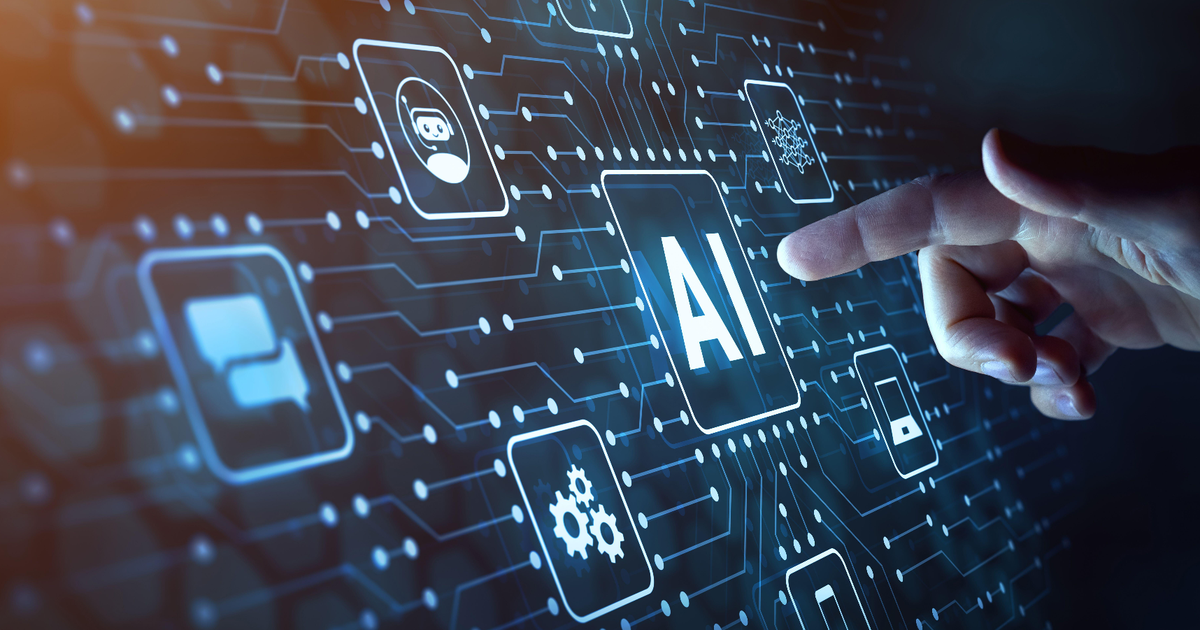AI's Impact on Entry-Level IT Jobs
By Gary Espinosa
The rise of artificial intelligence is fundamentally altering entry-level employment, creating unprecedented challenges for recent college graduates. Last year, there was a 25% decrease in hiring of recent graduates by major tech companies like Meta, Microsoft, and Google, compared to 2023. This represents thousands of fewer opportunities. As a whole, the hiring of recent graduates by big tech companies has plummeted by more than 50% since 2019.
I'll examine the state of the entry-level job market, particularly in the IT sector, what's driving the trends, the implications for both job seekers and businesses, and what can be done moving forward to kick-start IT careers.
The Challenging Entry-Level Job Marketplace
Recent graduates now face a nearly 6% unemployment rate, surpassing the national average of 4.2%. Despite comprising only 5% of the total workforce, graduates aged 22-27 with bachelor's degrees contributed 12% to the 85% rise in national unemployment since mid-2023.
Many are laying the blame on the impact of AI, which is being applied to many of the duties that were once covered by entry-level workers. And this trend is likely to continue: Dario Amodei, CEO of Anthropic, warns that AI could eliminate up to half of all entry-level white-collar jobs. To many, this is a sign of the bottom rung of the career ladder being irreparably broken.
The transformation mirrors the 1980s automation wave that affected blue-collar manufacturing, but now targets cognitive work traditionally performed by college-educated professionals.
The level of competition for entry-level roles means that companies can now include ridiculous requirements. Many "entry-level" roles now demand two to five years of prior experience, creating an impossible barrier for new graduates.
AI's Specific Impact on Entry-Level IT Careers
The IT sector has become ground zero for AI's disruption of entry-level employment. Hiring of new graduates by the 15 largest technology companies has fallen by more than 50% since 2019, while mid- and senior-level hiring rebounded in 2024.
Before the COVID-19 pandemic, new graduates represented 15% of hires at major technology companies; that figure has collapsed to just 7%. Even startups, once refuges for graduates unable to secure positions at larger corporations, are reducing headcount and hiring fewer entry-level candidates.
The average age of technical hires has increased by three years since 2021, reflecting companies' reluctance to invest in training junior talent. Furthermore, major firms like Salesforce and Shopify have explicitly stated their intention to meet growth needs with code rather than human hires.
There's been a stark change from past years when seniors commonly received significant sign-on bonuses and high-paying offers from multiple companies. Now, many students struggle to find post-graduation jobs, with startups preferring experienced professionals over recent graduates.
The business logic is straightforward: "Why hire an undergraduate when AI is cheaper and quicker?" While AI-generated code might not be top-tier, it often matches new graduate output while offering immediate iteration and improvement capabilities.
As a whole, the U.S. IT job market has shrunk with a loss of 22,300 positions in 2024, marking the second consecutive year of decline. IT unemployment increased from 3.9% in December 2024 to 5.7% in January 2025, largely due to AI adoption.
Practically every aspect of the IT sector is facing increased automation and AI usage. It's not just technical responsibilities like cloud monitoring and data entry, but also supposedly "human-facing roles" like sales and customer service having many duties taken over by AI. With 83% of companies stating AI is a top business priority, this trend is only going to continue.
Short-Term and Long-Term Implications for Job Seekers
The obvious impact for job seekers is a significantly increased difficulty in securing employment. Technology internships now attract roughly 2.5 times as many applications as in an average year, with data science and software engineering internships being over six times more competitive.
In the long term, we're likely to see a drastic shift toward workers who can effectively integrate AI into workflows. Being able to keep pace will be the most important skill in securing employment, whether you're a graduate or not: 39% of workers' existing skill sets will be transformed or become outdated over the 2025-2030 period. Candidates will need to focus on human capabilities like critical thinking, empathy, and problem-solving that AI cannot replicate.
Short-Term and Long-Term Implications for Businesses
Companies are experiencing immediate cost savings and efficiency gains. Companies like Duolingo, Klarna, and BT Group have already seen significant layoffs due to AI's productivity benefits. Short-term benefits include reduced payroll expenses and eliminated training costs.
Long-term challenges include potential threats to future leadership pipelines. The erosion of early-career development could create a global shortfall of 85 million skilled workers by 2030. However, successful AI integration could contribute up to $15.7 trillion to the global economy by 2030.
Are New AI-Created Roles Enough to Fill the Void?
It's been estimated that 60% of jobs in advanced economies are being altered by AI, with half potentially negatively affected in terms of their availability. However, some analysts are skeptical of predictions of massive short-term job extinction.
Historical precedents suggest technological innovations often create new roles while disrupting existing ones. E-commerce led to declining traditional retail jobs but created faster growth in better-paid e-commerce fulfillment positions.
AI is apparently spurring the emergence of new job titles: AI ethics officers, prompt engineers, machine-learning specialists, and automation engineers. Some argue that jobs don't die, they evolve and change.
However, a key concern is whether educational institutions and government policies can adapt quickly enough to teach necessary new skills, potentially creating a "workforce crisis" despite the emergence of new roles.
And let's be real: If AI is creating all these new jobs, why aren't there jobs available for new graduates? And it's worth querying the long-term viability of these roles: If AI is constantly evolving, improving, and finding new efficiencies, why will it require new human roles to run it when the aim for many AI companies seems to be self-sustainability? And do people actually want these roles? And, if you've spent tens of thousands of dollars on a college diploma, do you want your career to be maintaining the machines that have made your degree redundant?
Securing Your Place: Advice for IT Career Aspirants
Developing AI skills and basic AI literacy is crucial in the evolving job market. Whether you're actively looking for entry-level roles or will be soon, you need to act now on AI or risk being left behind.
Alongside this, you need to cultivate essential human capabilities beyond technical skills: critical thinking, emotional intelligence, problem-solving, and adaptability. These enduring human capabilities are vital for navigating complex work and becoming increasingly predictive of success in the AI age. In fact, these qualities are often the ones looked for first on resumes, and showing them can be crucial in securing an interview.
While the number of available tech internships might be declining, seeking internships and apprenticeships offering context-rich, hands-on experience is essential for gaining industry footing, especially if higher levels of experience are being demanded for "entry-level" roles. If direct entry-level positions aren't available, consider starting in related roles to build skills and experience.
Explore opportunities in small-to-medium-sized enterprises. While big tech companies shrink entry-level hiring, SMEs account for large parts of the workforce and are often desperate for talented IT professionals regardless of their experience. Many SMEs lack AI knowledge, presenting opportunities for graduates to bring valuable skills.
You could even look into volunteer or non-profit opportunities that could supplement your resume with evidence of your skill sets and the value you can bring to an organization.
As a whole, we need to redefine readiness for work beyond traditional credentials. Job seekers and graduates need to focus on demonstrating potential and agility through well-honed human capabilities rather than relying solely on tenure or degrees. Companies are shifting to skills-first hiring, emphasizing demonstrated skills, motivation, and learning agility.
Embrace continuous learning and upskilling. The job market is in constant flux, requiring ongoing education through online courses, certifications, company-sponsored programs, workshops, and micro-credentials in AI and data literacy.
The future belongs to IT professionals who navigate this transition thoughtfully, developing both technical skills to work alongside AI and irreplaceable human capabilities in an increasingly automated world.






Comments
Join Our Community
Sign up to share your thoughts, engage with others, and become part of our growing community.
No comments yet
Be the first to share your thoughts and start the conversation!